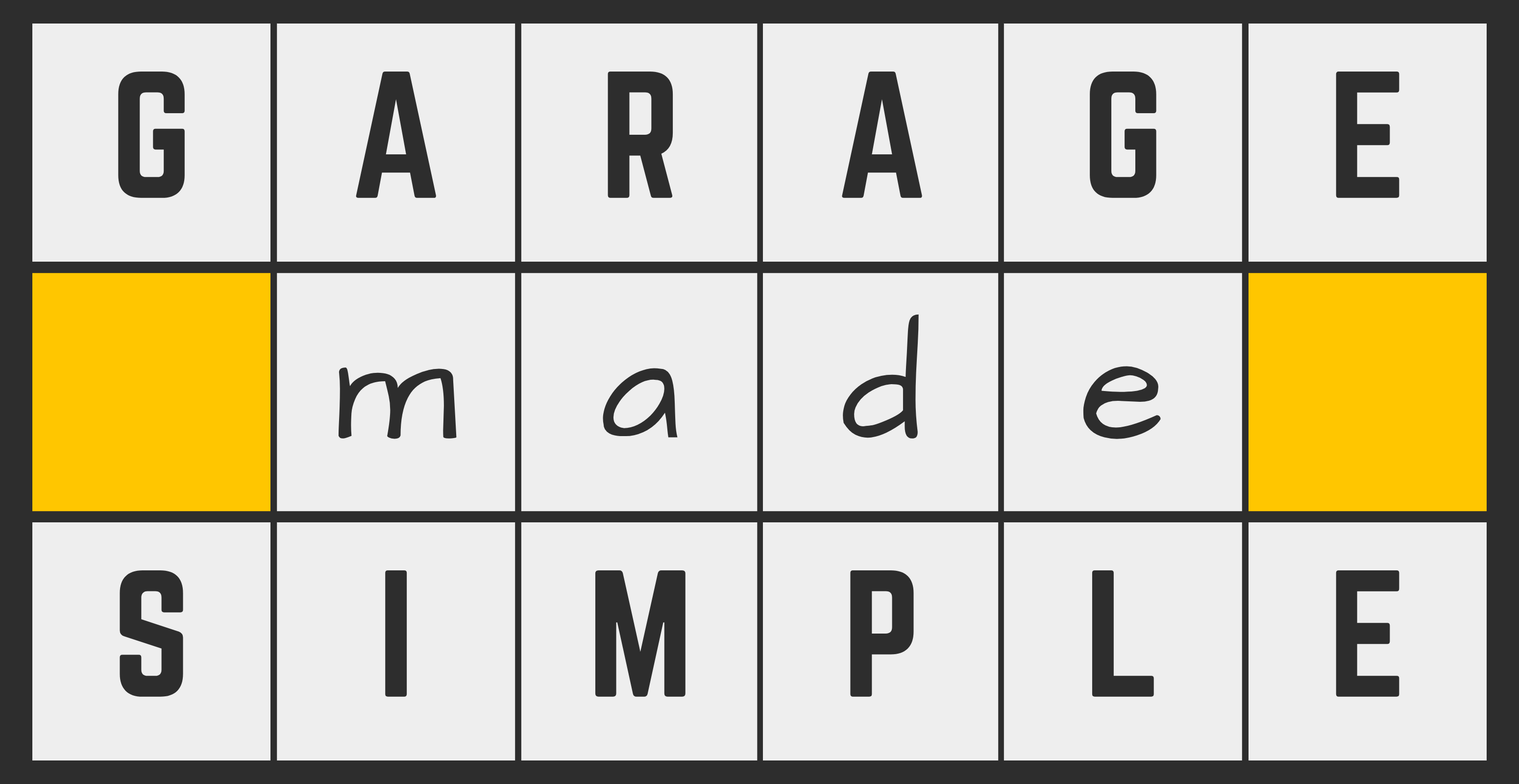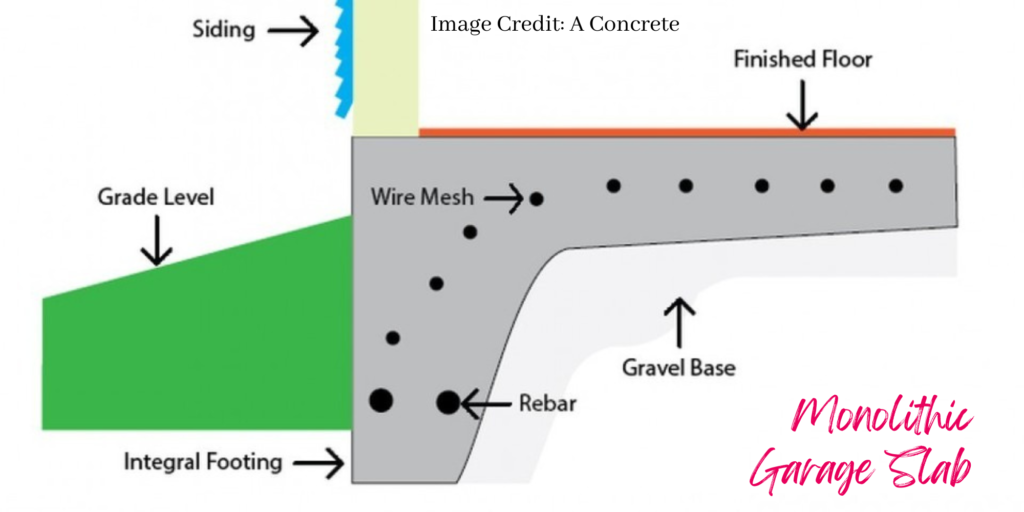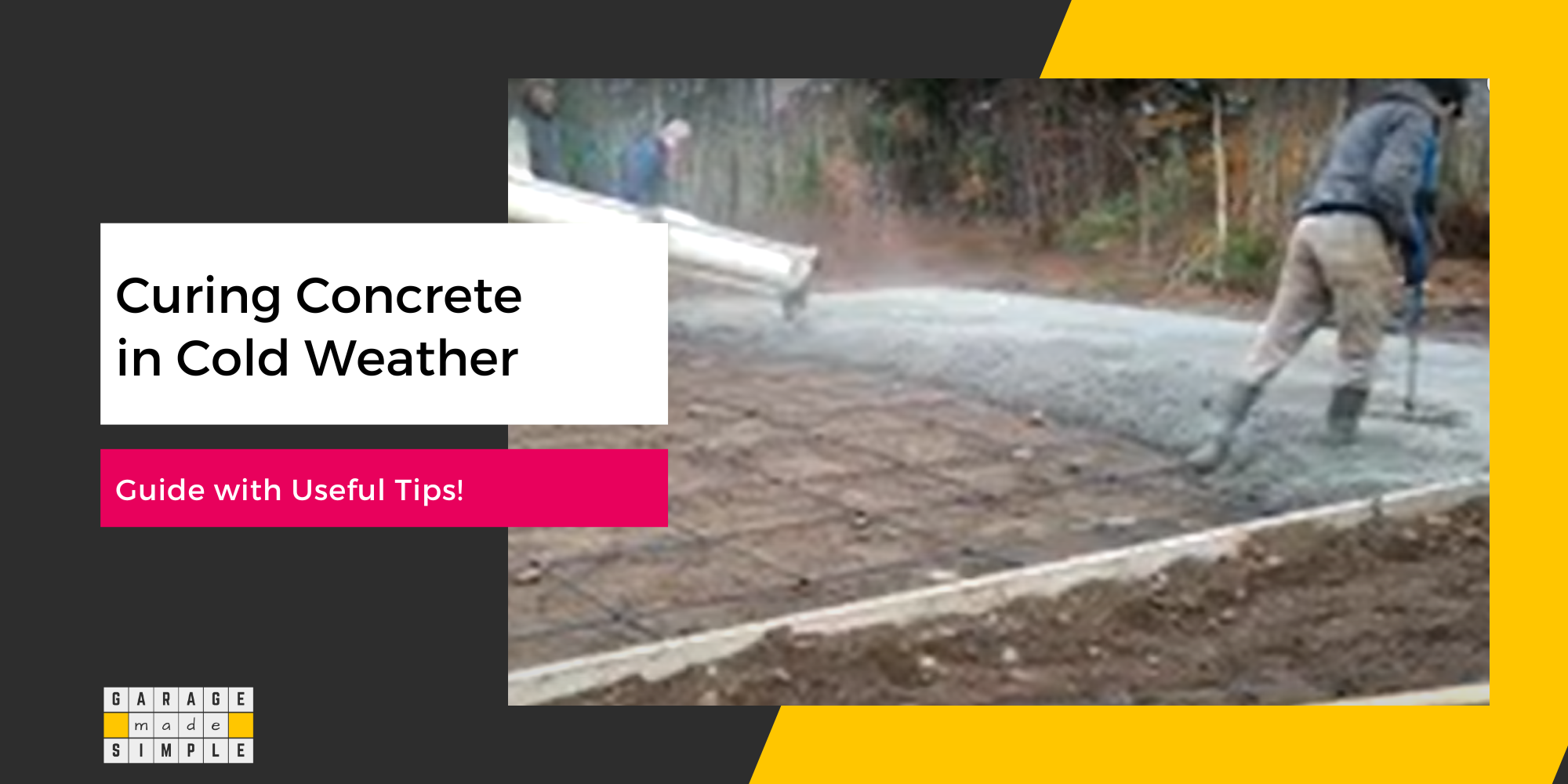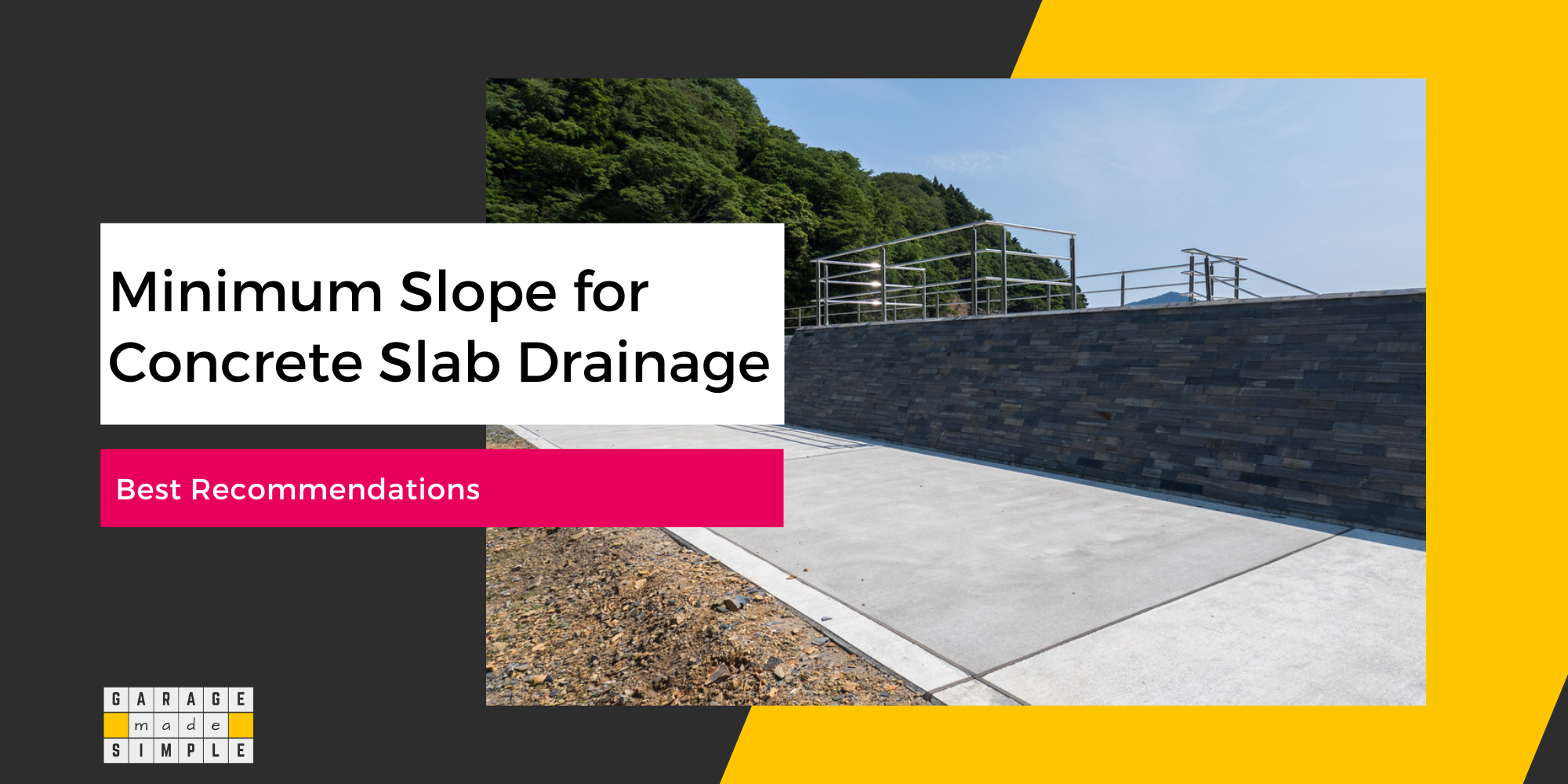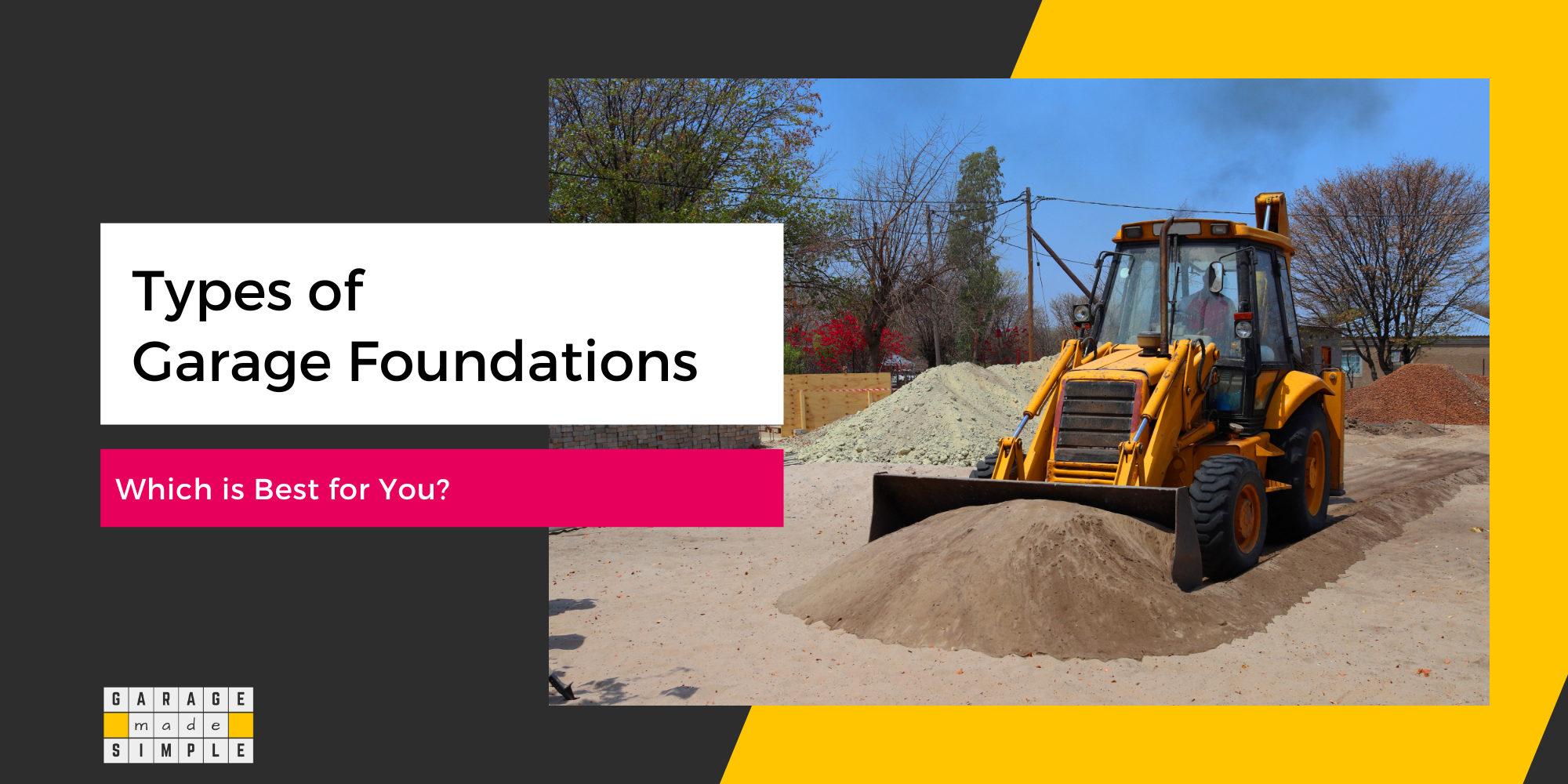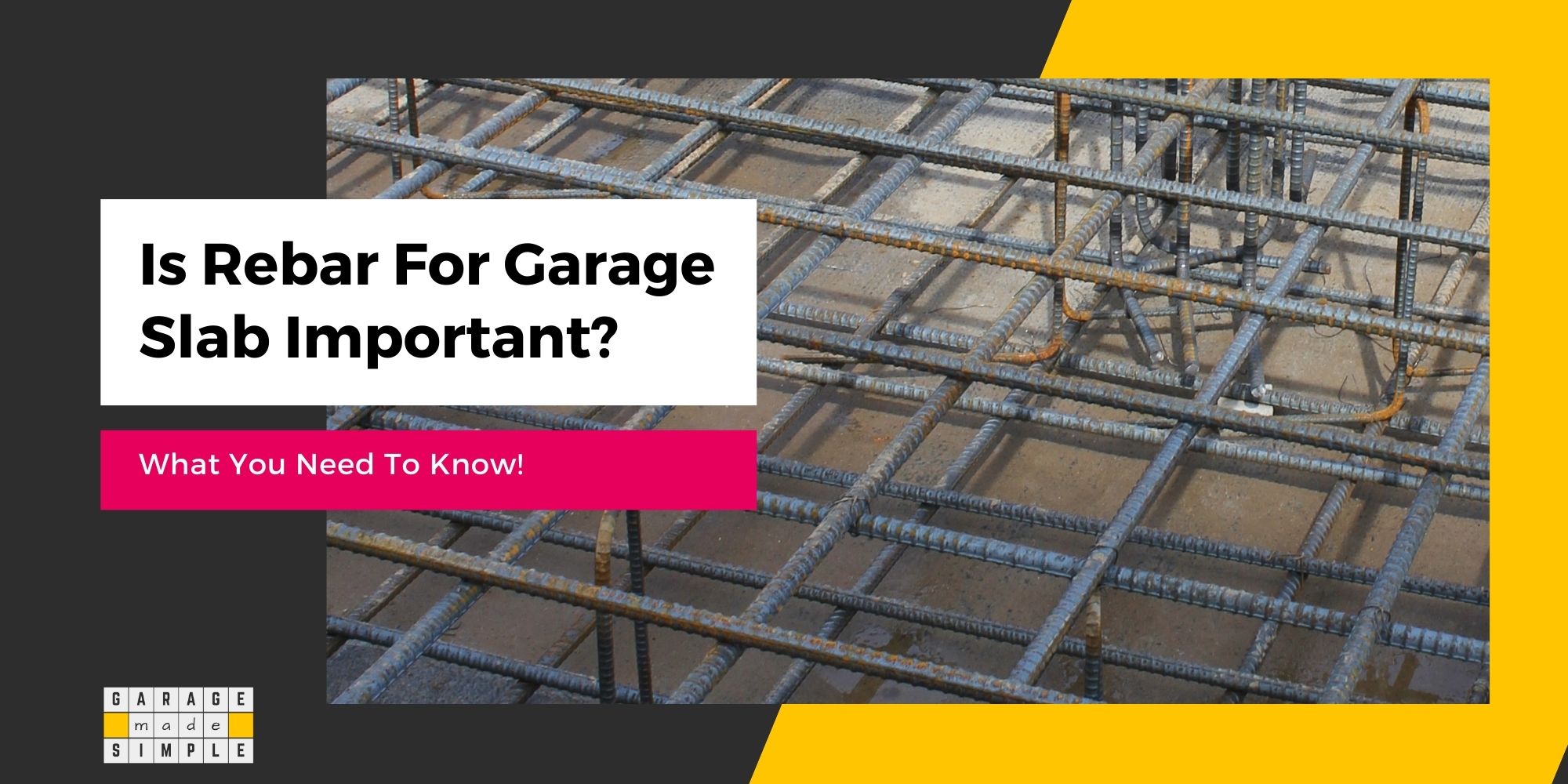Monolithic Garage Slab: Advantages & Disadvantages
garagemadesimple.com is a participant in the Amazon Services LLC Associates Program, an affiliate advertising program designed to provide a means for sites to earn advertising fees by advertising and linking to Amazon.com . The website is also an affiliate of a few other brands.
What is a Monolithic Garage Slab?
A monolithic garage slab serves both as the foundation and the floor of a residential garage. Unlike traditional foundation methods that involve separate pours for the foundation and floor, monolithic slabs are created in a single, continuous pour.
This simultaneous pouring of both the foundation and floor results in a seamless, integrated monolithic garage slab, a structure that excels in overall strength and load-bearing capacity.
The outstanding advantage of a monolithic garage slab lies in its simplicity and cost-effectiveness. By eliminating the need for multiple pours and joints, a monolithic garage slab reduces the risk of cracks and settlement.
A monolithic garage slab creates a solid, level concrete surface that is perfect for parking vehicles, storing goods and use for other recreational activities within the garage. You benefit from the simplified and streamlined construction process, saving time and labor costs.
Essentially, a monolithic garage slab ensures uniformity in quality, strength and durability.
How Does a Monolithic Garage Slab Work?
A monolithic garage slab is in fact a slab on grade where the perimeter is designed and poured to be thicker so that it can act as a foundation and be able to support the weight of the garage walls and the garage roof.
Structural Integrity and Load Distribution
A monolithic garage slab results in exceptional structural integrity because of its single-pour construction method. The foundation and the floor are, in fact, seamlessly connected. This integrated approach eliminates weak points typically found in multi-pour systems.
A monolithic garage slab results in a robust foundation capable of withstanding heavy loads. The absence of joints reduces the risk of cracks and settling. You get the benefit of overall stability of the garage structure.
The monolithic garage slab effectively distributes the weight of vehicles and other items stored in the garage, evenly and prevents buildup of localized stress points that can lead to cracks, slab deformation and structural damage over time.
Soil Support System
Preparation of the proper soil support system is the key to constructing a monolithic garage slab that delivers the desired results. Soil testing helps determine the soil’s composition and its load-bearing capacity.
American Concrete Institute defines the Soil Support System to be made up of 3 layers as under:
| Subgrade | This is the existing soil. The soil may have been improved by the addition of fresh soil. The soil layer is compacted. |
| Sub Base | Sub base is several layers of aggregates on top of the subgrade. The aggregate must be of irregular shape and different sizes. The bigger aggregates go at the bottom and the smaller aggregates stay at the top. The sub base is compacted at each stage. |
| Base | Base consists of layers of gravel and sand over the sub base. This is smoothed out & compacted. |
Advantages of a Monolithic Garage Slab
A monolithic garage slab offers significant advantages.
Cost-effective and Quick Installation
Single-pour monolithic slabs reduce labor and material costs, saving time and money. Not only are they easier to pour they also dry and cure faster.
Enhanced Durability and Longevity:
Absence of joints minimizes the risk of cracks and structural issues, providing a stable and long-lasting foundation.
Reduced Risk of Settlement:
Unified foundation and floor eliminate differential settlement issues, ensuring a level and stable garage structure.
Energy-Efficient
Monolithic slabs are energy-efficient because they eliminate the open space underneath the foundation and garage, which can lead to heat loss in the winter and heat gain in the summer.
Versatile Applications:
In addition to garage floors, monolithic slabs serve as reliable foundations for basement floors, driveways, sidewalks, patios, and shed pads, making them a popular choice for diverse construction needs in residential settings.
Disadvantages of a Monolithic Garage Slab
Of course, a monolithic garage slab comes with its own set of disadvantages.
Cracking
Unless adequate care is taken during the curing process, a monolithic garage slab is vulnerable to cracking. Soil movement and overloading can also result in garage floor cracks.
Insulation
A monolithic garage slab presents some challenges when it comes to garage floor insulation. This can impact energy efficiency and energy bills of the garage.
Homeowners in regions with extreme temperatures may need to invest in additional insulation measures.
Site preparation
Proper site preparation is essential for monolithic slabs to prevent settling and structural problems. Adequate care is imperative.
Repairs
Monolithic slab repairs can be expensive and challenging as the slab is integral to the structure. Homeowners should consult experienced contractors for any repairs.
Flooding Risk
A monolithic garage slab poses a greater risk of flooding of the garage floor than raised-foundation garages. Homeowners in flood-prone areas should take extra precautions to protect their garage.
Thank you very much for reading the post. I do hope you found it informative and useful.
